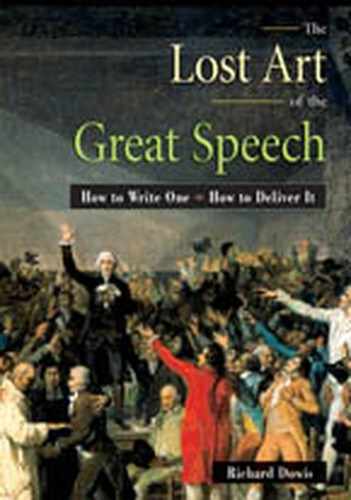Foreword
Many years ago, when I was laboring in obscurity as employee-newsletter editor for a small textile company, my boss asked me to prepare brief remarks for the president of the company to deliver at a gathering of longtime employees. I accepted the challenge with considerable trepidation. The situation was not ideal even for an experienced speech writer, certainly not for me, whose experience was absolute zero. The deadline was tight and I would not be given the opportunity to talk with the president to find out what he wanted to say. Guidance from my boss was minimal. It was left to me to decide what the president would say as well as how he would say it. Nevertheless, I somehow muddled through.
To my amazement, the president delivered the speech exactly as I had written it. Even more to my amazement, he sounded good. As I listened to him speak, I was conscious of every pause, every emphasis, every nuance that I had tried so hard to put into the remarks. I had made no effort to ''sound'' like the man. In truth, I couldn't have done so if I had tried, for I had met him only briefly and had never heard him make a speech. What I wrote for him was what I thought he ought to say and how I thought he ought to say it. That, I learned much, much later, is the speech writer's first duty.
The whole exercise was enormously satisfying. In later years, I was to experience the same satisfaction, the feeling that I had at least some influence on the direction of the company for which I was writing. I enjoyed hearing my words delivered by a good speaker.
After a brief stint as publications manager for The Coca-Cola Company, I joined the international public relations agency of Manning, Selvage & Lee, and over a quarter of a century with that firm I honed my skill as a speech writer. This book is a compilation of what I learned about writing speeches and, in the process, about delivering them, because writing and delivery are inseparable. So the book is intended both for people who write speeches for others and for people who write and deliver their own. It is also a defense of the written speech. I am not of the school that believes all good speeches are extemporaneous.
Because the book is to a large extent a memoir, I have written in the first person throughout. In addition to using examples from actual speeches to illustrate points, I have included at the end of each chapter at least one full speech or substantial excerpt from a speech by a well-known person. These speeches are selected both for their historical significance and to illustrate points made in the book. I believe reading and listening to speeches is one of the keys to learning how to write and deliver them.
Richard Dowis
Waleska, Georgia
